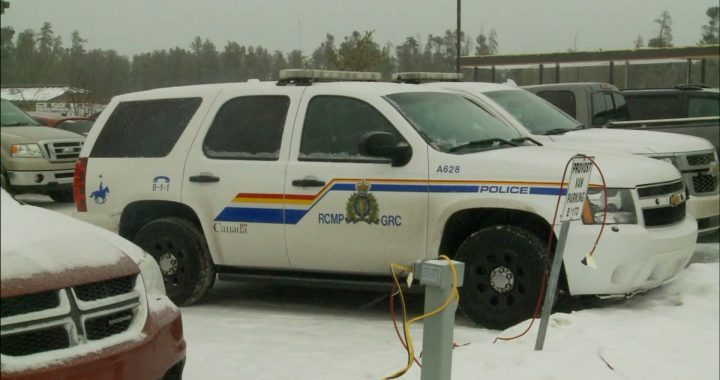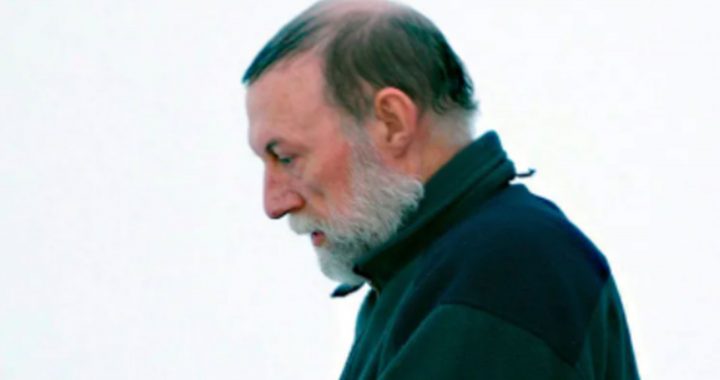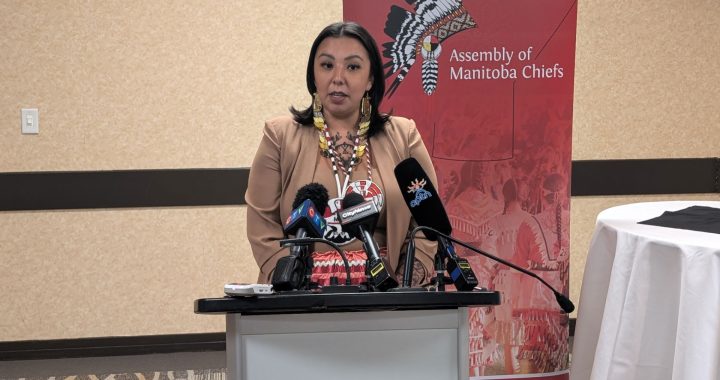A threatening wildfire has prompted a local state of emergency for the City of West Kelowna, B.C., and part of the nearby Westbank First Nation as crews prepare for the “most challenging” few days of the province’s fire season.
Central Okanagan Emergency Operations has also placed 68 properties on evacuation order and another 5,700 properties on alert due to the nearby McDougall Creek wildfire, which grew to three square kilometres in a matter of hours after it started on Wednesday.
Cliff Chapman, director of operations for the BC Wildfire Service, said at a news conference that they were seeing extreme behaviour by the fire that is just a few kilometres away from the community.
“We rarely see that type of fire behaviour, you know, pre-breakfast time in B.C., and we’re seeing it today and we’re going to see it continue through today,” he said during a news conference on Thursday.
Most of the southern half of the province has been baking under a heat wave, and Chapman said the breakdown of the high-pressure ridge will bring gusty winds and dry lightning, making the next few days the most challenging yet in a record-breaking fire season.
“You couple that with the extreme drought conditions that we’ve spoken about on these availabilities over the course of the last number of months, and the conditions out in the forests are very primed to see significant fire growth and to see new fires challenge our suppression efforts,” he said.
The areas under evacuation order or alert in West Kelowna don’t include Highway 97, which runs through the community, but do cover several business areas, neighbourhoods and subdivisions.
Register online
Evacuees are being asked to register online or go to the Information Centre at Royal LePage Place.
Emergency Management Minister Bowinn Ma said the wildfire service has deployed “significant resources” to the fire.
“It is our hope that we don’t have to recommend that the communities go to an evacuation order but, of course, we’re also asking everyone to be prepared now,” she said.
Chapman urged B.C. residents to put together a “grab-and-go” bag and to respect any evacuation orders because the conditions are so dangerous.
“I want to stress now is not the time to not adhere to evacuation orders and alerts. The weather is going to be erratic and significant, at least it is forecast to be,” he said.
“Please listen to your local governments and provincial officials when there is an evacuation order. We urge you to please leave. We will try to get you home as soon as we can (when) this weather system passes.”
He said that storms would sweep across B.C. from the northwest to the southeast, changing wind directions quickly, and challenging pre-emptive firefighting efforts.
“Lightning is our primary ignition source for new fires, and it has been for the predominant part of this fire season, and we are anticipating a significant number of new fires across the province of B.C.,” Chapman said.
Potential impact
He said the highest potential impact will be in the Cariboo, Kamloops and Southeastern fire centres.
“But, the north is not out of the woods,” he said. “It is really provincially challenging, but I think the highest potential impacts are in the southern half of the province.”
The blaze near West Kelowna was one of 14 fires of note in B.C. on Thursday, meaning they are highly visible or threatening public safety.
They are among about 370 active fires in B.C., as the province emerges from the protracted heat wave that began Sunday.
Forest Minister Bruce Ralston told the news conference that the drought situation has worsened, with 28 of B.C.’s 34 water reservoirs at Level 4 or 5, the highest possible rankings on the scale.
A total of 49 daily heat records have been broken during the heat wave, that sent temperatures into the 40s in some parts of B.C.
But only a handful of records were set Wednesday, including in Lillooet, which was the hottest place in Canada, at 39.3 C, breaking the old record set in 2008. Heat warnings have been dropped for Metro Vancouver but remain posted for areas including a section of eastern Vancouver Island, the Fraser Canyon, Thompson and 100 Mile regions, as well as much of the Kootenay, Okanagan and Boundary.
Fire situation
While the fire situation is precarious in B.C., Ma said the province is able to lend a hand to those in the Northwest Territories where fires have forced the evacuation of the entire capital city of Yellowknife, along with several other smaller communities.
Ma told the news conference that 55 hospital patients and care-home residents evacuated from the territory were expected to arrive in Vancouver.
“We’re able to provide approximately 1,100 spaces in the north to receive evacuations if they require it,” Ma added.
Premier David Eby offered his support to the Northwest Territories, saying the hearts of British Columbians are with its residents.
But officials, including Chapman, said B.C. must remain focused on its own firefighting challenges.
“We will not see record temperatures the way we have been seeing, but we are not going to see rain, so we are going to continue to need resources in B.C. to continue to protect the homes and properties across the province,” he said.
“We have significant fire on the landscape that we (have) been actively working 24 hours a day for the last number of weeks. Our anticipation is that is going to continue for the next couple of weeks ahead.”
A public information line is available at 1-250-469-8490 or 1-877-569-8490.










